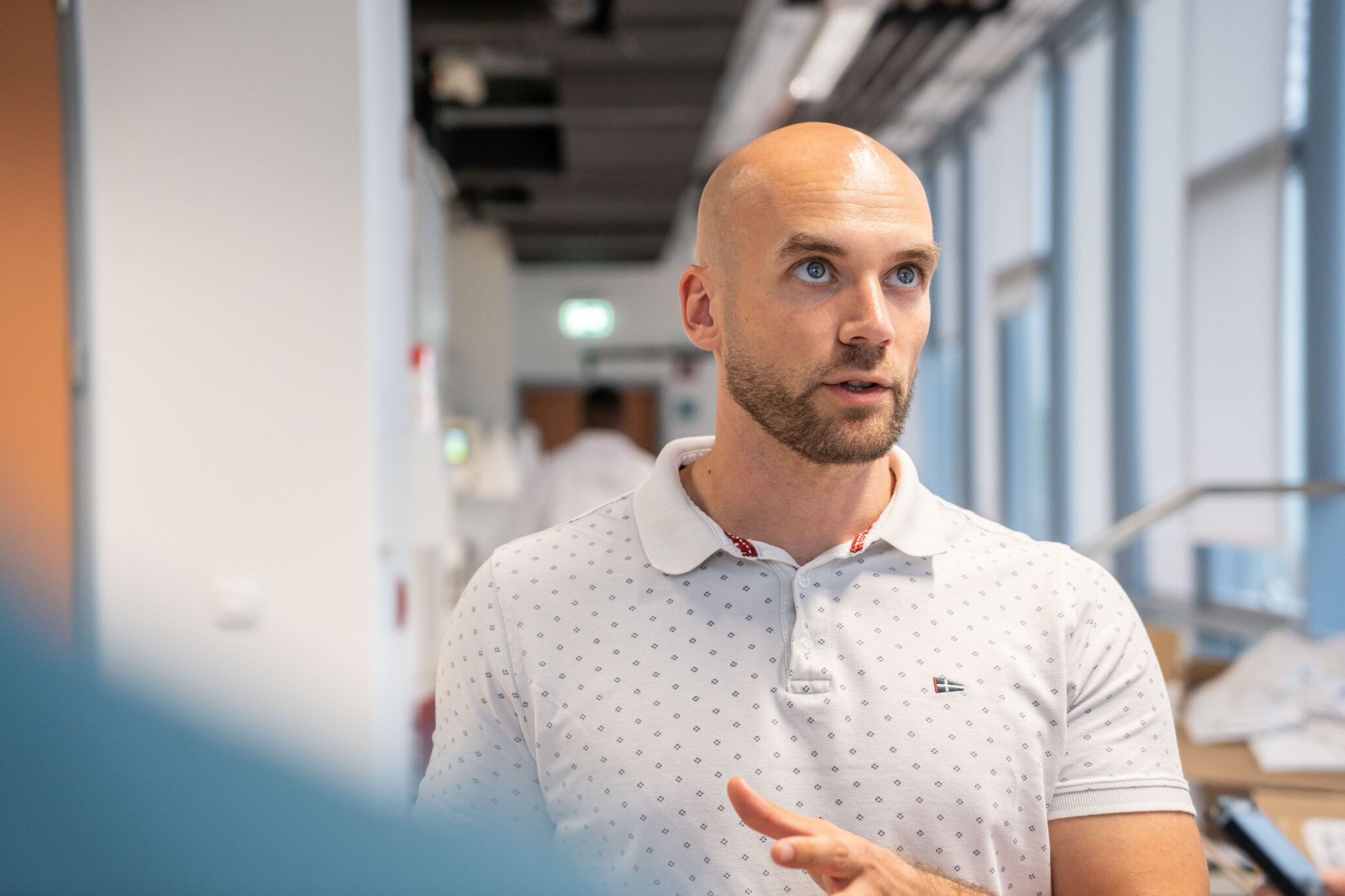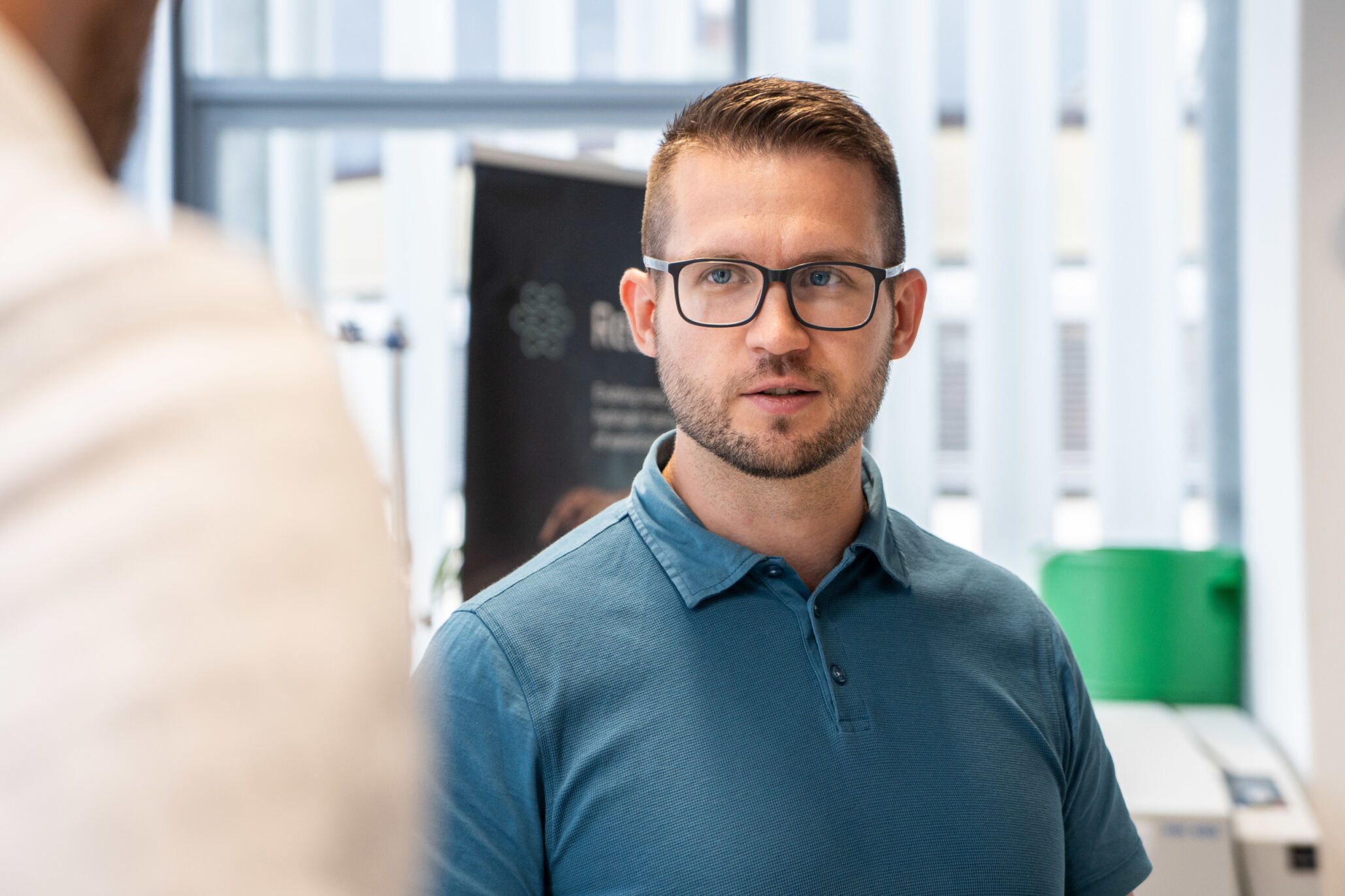ReCatalyst, a company developing, producing, and selling next-generation catalysts for hydrogen fuel cells, has been making waves in the market nearly a year after winning the Slovenian Startup of the Year award and securing a €1.7 million investment. The spin-out from the National Institute of Chemistry is expanding its team, gearing up to move into its own premises, and planning for continued growth while maintaining a close relationship with the organization from which it emerged.
What has changed in the past year since your investment? What are your main activities now?
“Although it's been eleven months, not quite a year, a lot has changed! Before the investment, we had just 0.3 full-time employees; by the time of the investment, we were three, and by the end of the year, we had grown to ten. Including all our outsourced colleagues we communicate with daily, we’re now a team of 16. The team has grown very quickly.”
What challenges come with such rapid team growth?
“If our growth continued at this pace, it'd be different than at the beginning. In the beginning, we had to establish a lot while also integrating new team members. We did this during working hours and then worked overtime to catch up on what we couldn’t finish during the day. This lasted until the end of the year. This year, Tomaž Bizjak (co-founder) and I have been able to focus more on strategic topics, stepping back from lab work. We've moved to a higher level. During this time, we've gained many clients, the team has tackled process challenges, and we’ve continued product development. We’ve accelerated sales and ongoing testing. We've also started looking for a new location to scale our operations and prove the industrial scalability of our solution. Although we're still at the pilot stage, our current conditions are sufficient for our clients, but we'll need to show we can produce more in the future. We want to stay in Ljubljana or nearby to maintain our connection with the Institute. We've found a location, but we need to set up the infrastructure, especially ventilation and ceiling height. The renovation will happen in phases, aiming to be completed by the second half of 2025. Finding suitable infrastructure has been a challenging operation. We hope the country will improve conditions for the development of deep-tech startups emerging from our public research organizations. Strengthening the ecosystem in this area is crucial.”
Has your product changed during this phase?
“We’ve refined the product. In startup jargon, a year ago we were at the MVP stage (Minimum Viable Product). Now, we’ve optimized both the process and the product, responding to customer feedback and results.”

Source: Anja Cej / Večer
You are also part of EIC Transition. What does this mean for you?
“We are still developers, supplying the catalysts. Additionally, we have another startup, Ionysis, which produces electrodes with our catalyst. Another large company, EKPO Fuel Cell Technologies, is also part of the project and will test and validate the technology from both us and them. Essentially, it’s a continuation of validating our concept. The project has a budget of 2.5 million euros.”
What is your goal?
“Our goal remains to optimize the expensive and rare platinum in fuel cells. Their goal is to eliminate fluoropolymers from fuel cells. Regulatory attention is increasingly focused on eliminating fluoropolymers. There is a high probability that the presence of fluoropolymers in specific fuel cells will not be banned, mainly because these polymers stay in the device. However, recent documentaries reveal that the production of these polymers is problematic. If we can shift hydrogen technologies to alternatives that don’t rely on fluoropolymers, it will be a significant leap forward. We’re working on some pretty exciting things.”
A year ago, you and co-founder Tomaž Bizjak emphasized the importance of policymakers asking what high-tech companies like yours need for the future. What feedback are you getting from policymakers now? There’s a lot happening, including the proposal of Slovenia’s startup strategy…
“A lot is happening in the startup ecosystem. The National Institute of Chemistry is expanding, and startups need their own space. Infrastructure that can host startups, especially high-tech ones, is crucial. The proposed strategy includes the possibility of establishing a lean joint-stock company. This is something we are already working on, as it’s vital for a startup to be able to reward key employees. Additionally, the work of the expert council also needs to be adequately compensated. These are established practices abroad that work well and are worth bringing to Slovenia. There’s no need to reinvent the wheel – we should adapt and adopt these good practices to our environment.”
Although the final for the Slovenian Start:up of the Year 2024 is approaching, ReCatalyst will always be the Slovenian Start:up of the Year 2023. What does this award mean as a reference, both nationally and beyond?
“We’ve certainly leveraged this title everywhere; even when we were filming the video for our application to the EIC Accelerator - as we are now applying for the continuation of the EIC Transition program we’re part of - we highlighted our awards, including the Slovenian Start:up of the Year award. We dedicated a frame to it. Wherever possible, we proudly mention that we are the Slovenian Startup of the Year. Especially since we’re from Slovenia, where we've always had to prove ourselves more, this award is a mark of credibility. It indicates that we might be above average. Every such accolade helps us, and this award has greatly helped us. For instance, our LinkedIn profile truly blossomed after we received this award, doubling our number of followers in a very short time. Shortly thereafter, we received an investment, started hiring, and saw great interest in working with us. I believe this wasn’t just a coincidence; the publicity associated with this award definitely helped. In an environment where it’s often said that finding new or quality employees is challenging, especially when there’s talk of labor shortages everywhere, we had no trouble filling our initial key positions. Now I can confidently say that we have an incredible team.”
The Slovenian Start:up of the Year 2024 will soon be announced
DDD Invoices, Fliqa, TipPri, Remea, and Plan Z are this year’s five finalists for the Slovenian Start:up of the Year award. The best startup, chosen by the panel, will be announced on June 18 at 6 PM at the Si-Ti Theatre in Ljubljana. What groundbreaking solutions are this year’s finalists developing? You can get to know all the finalists here.

Source: Anja Cej / Večer
Source: Sagaj, M. (4 June 2024). Matija Gatalo, ReCatalyst: Kot slovenski startup leta smo lažje prišli do dobrega kadra. Večer. Available at the website.








